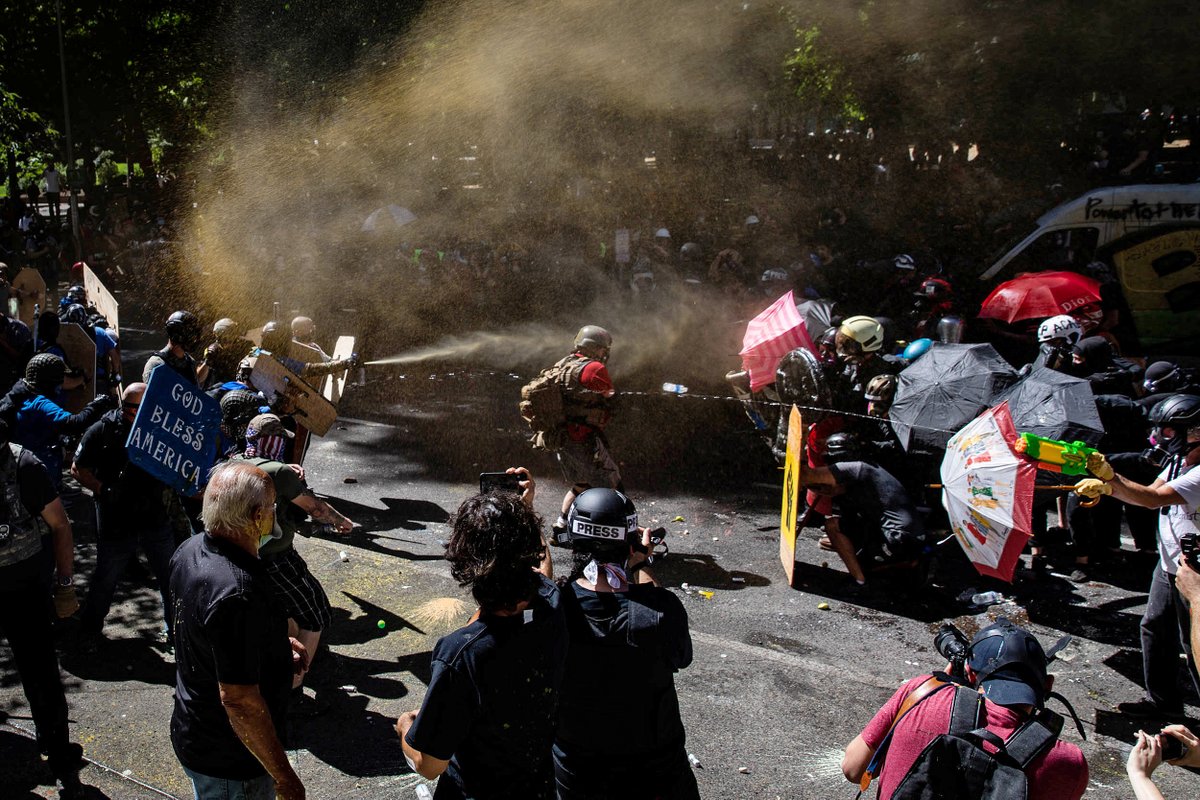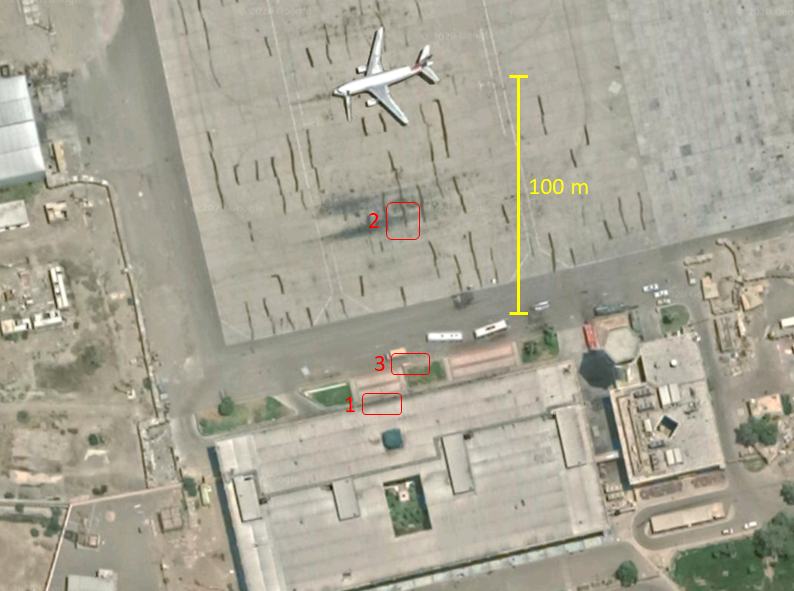
Footage from a GoPro found at the scene of a riot in Portland last year appears to show far-right figure, Alan Swinney, preparing for violence at protests and discussing how to raise funds for weapons
New from @shane_burley1 @hungrybowtie and @Iwriteok
bellingcat.com/news/2021/02/1…
New from @shane_burley1 @hungrybowtie and @Iwriteok
bellingcat.com/news/2021/02/1…
@shane_burley1 @hungrybowtie @IwriteOK Swinney gained widespread notoriety after he was pictured aiming a pistol at left-wing demonstrators at a protest event in Portland on August 22, last year.
@shane_burley1 @hungrybowtie @IwriteOK The 50-year-old is currently in jail awaiting trial on charges that include alleged assault, attempted assault and unlawful use of a weapon at that same August 22 protest. He denies all charges.
@shane_burley1 @hungrybowtie @IwriteOK The GoPro, which appears to have been worn and carried by Swinney was discovered lying on the ground in the aftermath of the chaotic August 22 protest, although it contained no footage from that day 

@shane_burley1 @hungrybowtie @IwriteOK It does, however, appear to show Swinney’s activity at protests and in conversation with associates in the weeks and months prior.
The activist who found the footage subsequently uploaded it to YouTube.
The activist who found the footage subsequently uploaded it to YouTube.
@shane_burley1 @hungrybowtie @IwriteOK In the videos, Swinney can be heard discussing how to use bear mace and raising funds to buy more of it.
“It's worth every penny when you get to spray Antifa with it,” he says.
“It's worth every penny when you get to spray Antifa with it,” he says.
@shane_burley1 @hungrybowtie @IwriteOK Swinney can also be seen handing out pepper spray canisters to fellow protesters in the footage.
@shane_burley1 @hungrybowtie @IwriteOK In another video, Swinney be heard discussing plans to lure out Antifa.
“I’ll be out there by myself. They’ll think “ooh he’s out there by himself, let’s go get him!” He then adds: “I still got a gun. I still got mace. I still got a pole.”
“I’ll be out there by myself. They’ll think “ooh he’s out there by himself, let’s go get him!” He then adds: “I still got a gun. I still got mace. I still got a pole.”

@shane_burley1 @hungrybowtie @IwriteOK Bellingcat reached out to the lawyers representing Swinney to ask for comment on the GoPro videos and the details contained within this article but did not receive a response before publication.
• • •
Missing some Tweet in this thread? You can try to
force a refresh











